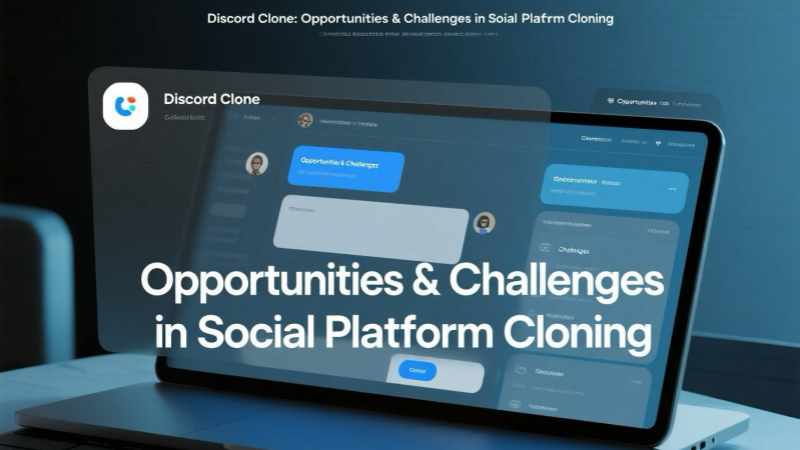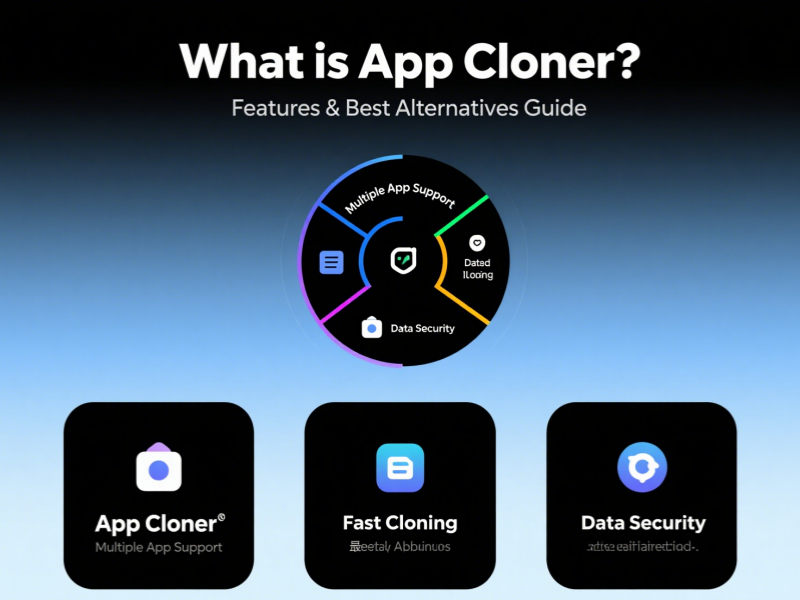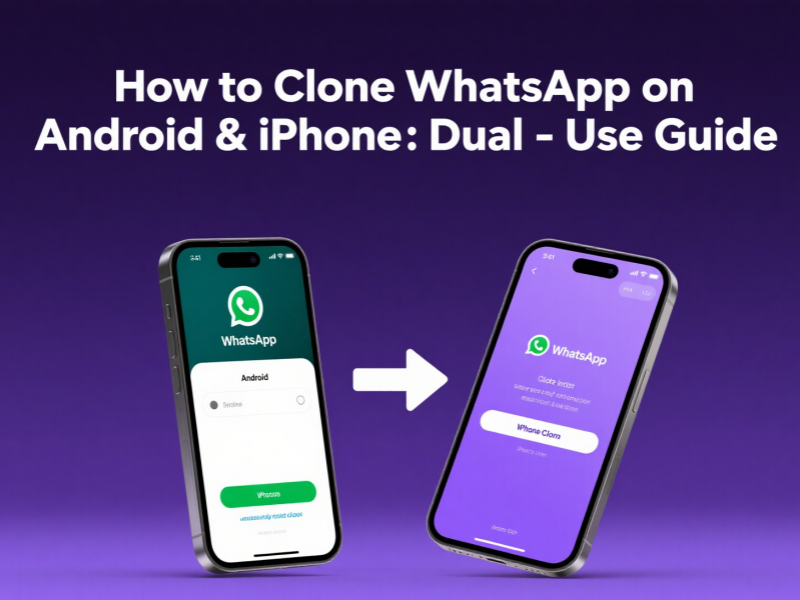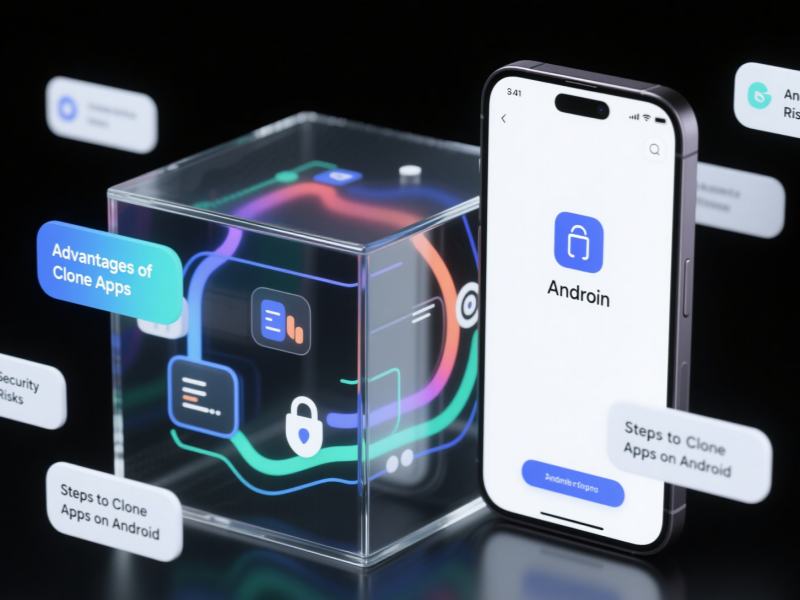
In the realm of instant messaging and social networking, Discord has become the preferred platform for tens of millions of users worldwide, thanks to its powerful voice calling, channel management, and community interaction features. The “Discord clone” ecosystem spawned by this phenomenal product is gradually forming a unique market segment. From simplified versions to feature-enhanced versions, these clones (Discord cloners) not only meet diverse user needs but also reflect the innovation and competition in the social tool space. This article will focus on “Discord clone” to deeply analyze the technical characteristics, application scenarios, and potential risks of these clones. It will also explore potential synergies with the multi-opening tool
Parallel Space.
Discord Clone’s Technical Core and Functional Differentiation
Definition and Technical Path: The Diverse Forms of Discord Clone
“Discord clone” is not a single product, but rather a general term for all social tools that mimic Discord’s core architecture. The technical implementation paths of these products can be roughly divided into two categories: lightweight versions developed based on open source frameworks (such as Rocket. Chat and Revolt), and competing products built from scratch by independent teams.
Architectural commonality: Continuation of the core three-tier structure
Regardless of the model, they all retain Discord’s core three-tier architecture of “server-channel-role,” but exhibit significant differentiation in functional details.
Functional differentiation: from basic to advanced scenario adaptation
- Basic Discord cloners typically focus on core communication features: supporting basic operations such as text chat, voice channel creation, and file transfer, making them suitable for small teams or communities to quickly establish communication scenarios. For example, cloners designed for gaming guilds will enhance low-latency voice calls, while enterprise-oriented versions focus on managing permissions and encrypting data.
- Advanced products build on these capabilities with innovative features. For example, some Discord server clone tools allow for one-click duplication of an existing Discord server’s channel structure and permissions, significantly reducing community migration costs.
Technological Trade-offs: The Art of Balancing Performance and Experience
It’s worth noting that the differences between these clones and the original Discord lie not only in functionality but also in the trade-offs made in their technical architecture. To reduce server load, most Discord clones simplify their real-time synchronization mechanisms, which can lead to message delays in high-concurrency scenarios. However, some products utilize edge computing optimizations, achieving a smoother experience than the original in specific regions.
Application Scenarios: Diverse Needs from Individuals to Enterprises
Lightweight demand: the choice logic of ordinary users
The thriving Discord clone ecosystem is essentially a reflection of the diversity of user needs. For average users, lightweight clone Discord apps may be more appealing—they take up less storage space, launch faster, and are suitable for mobile devices with limited specs. For example, some simplified clones retain only text chat and single-channel voice functionality, with installation packages under 10MB in size, making them ideal for users with low-end phones.
Community Operation Efficiency: The Core Value of Server Cloning Tools
For community operations, the value of Discord server clone tools is particularly prominent. Many content creators or business administrators need to maintain multiple communities with similar themes (such as game guide sections and fan support groups). The Discord server clone feature allows users to copy channel categories, role permissions, and even chat history with a single click, significantly reducing duplication of work. One gaming guild administrator revealed that using the clone tool reduced the time it takes to configure a new server from 8 hours to 15 minutes, and reduced permission errors by 70%.
Enterprise-level scenarios: customized solutions for specialized cloning products
The enterprise market has spawned specialized Discord clones. These products typically offer enhanced data compliance and integration capabilities, such as support for connecting to corporate email systems, exporting chat history to local servers, and setting up multi-level administrator approval processes. For organizations with strict data sovereignty requirements (such as government departments and research institutions), these clones offer a more controllable private deployment solution than the original Discord.
Potential Synergy with Parallel Space: A New Approach to Multi-Account Management
In a digital age where running multiple accounts is the norm,
Parallel Space, as a mature multi-app tool, is creating remarkable synergies with various social and office applications, demonstrating unique value in account isolation and scenario-based management. This synergy not only eliminates the tedious task of switching between accounts but also reshapes the management logic of multi-identity digital lives.
Sandbox technology: the core support for account isolation
Parallel Space’s core advantage lies in its sandboxing technology, enabling independent application instances to run independently, completely isolating the data of multiple accounts on the same device.
Cross-scenario collaboration: full coverage from social networking to office work
In office scenarios, the value of synergy is further highlighted. Business professionals often need to use both personal and enterprise apps (such as WeChat and DingTalk) simultaneously.
Parallel Space completely separates the cache, login status, and data storage of these two apps, complying with enterprise data security regulations while protecting personal privacy. A survey showed that 83% of workplace users using this tool reported a reduction of over 60% in account switching time and a nearly 90% reduction in the accidental deletion of important information.
Compatibility advantages and potential limitations
Compared to built-in multi-account features within apps, Parallel Space offers superior compatibility. Some apps, such as earlier versions of social media platforms, don’t support multiple logins. Parallel Space, however, allows for multiple logins through system-level isolation, eliminating the need to rely on native app functionality. Even niche cloning apps (such as Discord cloners) can be recognized and created as independent environments once properly installed, giving users greater freedom in tool selection.
However, be aware of potential limitations when using these apps together. To prevent abuse, some apps detect multiple logins and restrict functionality (such as disabling payments or limiting synchronization). Therefore, it’s recommended to test the usability of core features beforehand. At the same time, running multiple instances increases device memory usage and may cause lag on lower-spec devices. Therefore, it’s important to manage the number of instances appropriately based on hardware performance.
The Essence of Collaboration: Flexible Management of Digital Identity
Fundamentally, the synergy between Parallel Space and various applications is not only a technical complementarity but also reflects the user demand for “identity flexibility” in the digital age—the need to switch between roles in different scenarios while minimizing management costs. This collaborative model is becoming one of the optimal solutions for managing multiple accounts, providing a rare sense of order in our fragmented digital lives.
Risks and Controversy: The Dark Side of the Clone Ecosystem
While Discord clones offer users more options, the potential risks within the ecosystem should not be ignored. From a technical perspective, unofficial Discord clone apps may have security vulnerabilities. In 2024, a well-known cloning tool was exposed for a flaw in voice data packet encryption, allowing some users’ calls to be intercepted. Some products also collect user behavior data in the background for profit, infringing on privacy rights.
Legal disputes are also prominent. Discord’s parent company has filed lawsuits against several Discord clones that closely mimic its interface and trademark, alleging unfair competition.
Functional stability is another major concern. Most Discord cloner teams are much smaller than the official Discord team, making it difficult to cope with sudden traffic spikes or complex compatibility issues. An educational institution reported that its cloned product frequently crashed during live classes with hundreds of participants, ultimately forcing it to urgently switch back to the original platform.
Future Trends: Differentiated Innovation and Compliance
For the Discord clone ecosystem to achieve sustainable development, shedding the label of “simple imitation” is key. Some products are already exploring differentiated approaches: for example, cloning tools featuring “zero-knowledge encryption” decrypt all chat content only on the user’s device, preventing the server from accessing plaintext information, thus meeting the highest privacy requirements. Other products focus on specific niches, such as versions designed for musicians with built-in audio mixing capabilities and channels optimized for designers with real-time previews of PSD files.
Compliance is also an inevitable trend. An increasing number of Discord clones are utilizing independently developed core code, borrowing only from Discord’s interaction logic rather than its technical implementation to mitigate legal risks. At the same time, some teams are proactively collaborating with content copyright holders to resolve material usage issues through legitimate licensing. This model has been proven in game livestreaming clones.
In a sense, the rise and fall of the Discord clone ecosystem reflects the laws of innovation in the social tool space: imitation is the starting point, but only differentiated breakthroughs based on real needs can truly win the market.
FAQ
1. What is a Discord clone? What are its core differences from the original Discord?
A Discord clone is a clone of the social platform that mimics Discord’s core features (such as voice calling and channel management). Compared to the original, most clones simplify server load or focus on specific scenarios (such as enterprise collaboration). Some differentiate themselves through new features (such as AI moderation), but they generally lack the ecosystem sophistication or user base of the original.
2. How do I clone a Discord server? Are there any risks?
Dedicated tools (such as some built-in features in Discord Clone) can replicate a server’s channel structure, permissions, and other settings. However, be aware that cloning may violate the original Discord’s terms of service, resulting in account restrictions. If paid plugins or copyrighted content are involved, this may also lead to legal disputes.
3. When using Discord Clone, can I use Parallel Space to log in multiple accounts simultaneously?
Yes. Parallel Space is a multi-opening tool that allows you to run multiple Discord clones or the original client in isolation on the same device, making it ideal for users who need to manage both personal and work accounts. However, you should ensure that your cloned product is compatible with your multi-opening tool to avoid data synchronization issues.
 In the realm of instant messaging and social networking, Discord has become the preferred platform for tens of millions of users worldwide, thanks to its powerful voice calling, channel management, and community interaction features. The “Discord clone” ecosystem spawned by this phenomenal product is gradually forming a unique market segment. From simplified versions to feature-enhanced versions, these clones (Discord cloners) not only meet diverse user needs but also reflect the innovation and competition in the social tool space. This article will focus on “Discord clone” to deeply analyze the technical characteristics, application scenarios, and potential risks of these clones. It will also explore potential synergies with the multi-opening tool Parallel Space.
In the realm of instant messaging and social networking, Discord has become the preferred platform for tens of millions of users worldwide, thanks to its powerful voice calling, channel management, and community interaction features. The “Discord clone” ecosystem spawned by this phenomenal product is gradually forming a unique market segment. From simplified versions to feature-enhanced versions, these clones (Discord cloners) not only meet diverse user needs but also reflect the innovation and competition in the social tool space. This article will focus on “Discord clone” to deeply analyze the technical characteristics, application scenarios, and potential risks of these clones. It will also explore potential synergies with the multi-opening tool Parallel Space.



